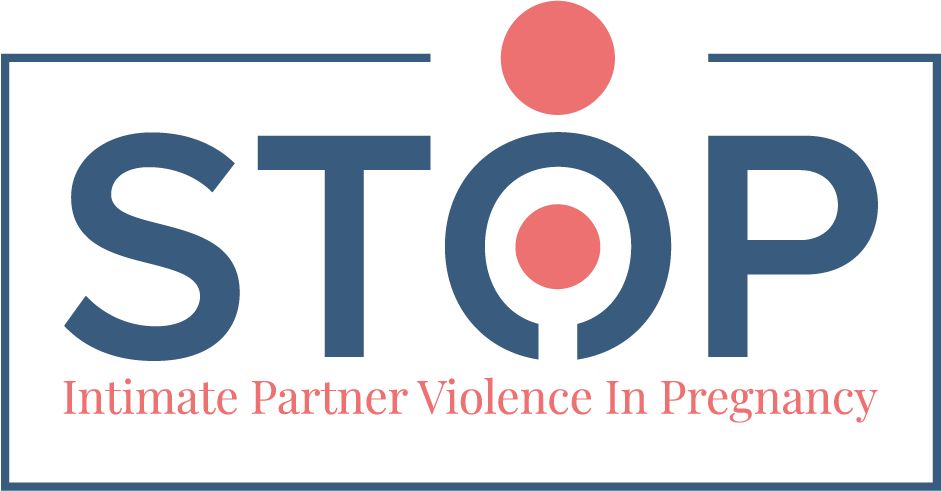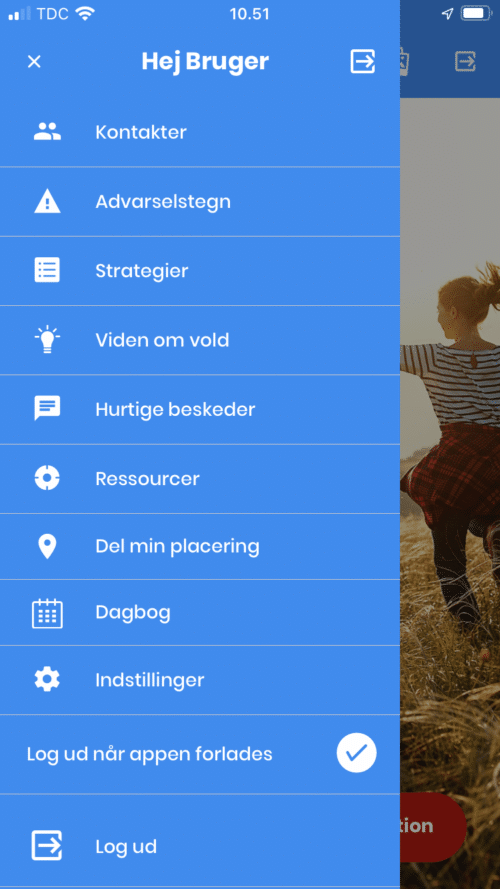IPV Screening Tool
Nothing found.
Video Counselling & app based safety planning
Report on end-user needs
A report on the end-user needs has been developed, including the technical specification for video-based counselling service and app based support in the STOP-project.
In order to develop the STOP intervention, focus group interviews, individual interviews and workshops were conducted with relevant stakeholders in both Denmark and Spain. The following were identified as the main aspects where the women are in need of support:
Acknowledgement: The pregnant woman does not see herself as a victim of violence and finds it hard to accept.
Ambivalent emotions towards the partner: They have a lot of dreams and hopes regarding their relationship, and this makes it hard to accept that their “life project” to create a family is broken.
Fear of the system: Fear of losing custody of their child if they communicate their situation.
Resources: Worries about being on their own, having to do everything on their own and without financial support from the partner.
Low self-esteem: Finding it difficult to make decisions and taking actions to change their situation.
Isolation: Rebuilding their connections and relations in the world, helping them identify their network and learn about the resources available for help.
The user needs were translated into technical specifications for the video counselling software and the safety planning app.
STOP – Spanish screening tool for IPV
As part of the STOP, a report has been prepared to present the Spanish screening tool to be used in the screening for IPV among pregnant women in the Spanish site.
The report provides a description of the electronic Spanish screening application, which has been developed to identify pregnant women exposed to intimate partner violence. In the report, you will also find screenshots of the different sections in the app such as the introduction to the project and the included questionnaires (AAS, WAST-short, and ISA.
STOP Data Collection
As part of the STOP, a report has been prepared to present the data collection across the two sites.
The report provides an overview of the data collection in the context of WP4. Here, you will find an overview of the study population followed by a description of the STOP interventions and training of midwives and psychologist for the data collection. Furthermore, it provides a description of the qualitative data collection, the management of the data and monitoring of the intervention, and ethical considerations in relation to the data collection.
Multidisciplinary Assessment & Feasibility Study
Nothing found.
Feasibility of continuation and upscaling
Report on end-user needs
A report on the end-user needs has been developed, including the technical specification for video-based counselling service and app based support in the STOP-project.
In order to develop the STOP intervention, focus group interviews, individual interviews and workshops were conducted with relevant stakeholders in both Denmark and Spain. The following were identified as the main aspects where the women are in need of support:
Acknowledgement: The pregnant woman does not see herself as a victim of violence and finds it hard to accept.
Ambivalent emotions towards the partner: They have a lot of dreams and hopes regarding their relationship, and this makes it hard to accept that their “life project” to create a family is broken.
Fear of the system: Fear of losing custody of their child if they communicate their situation.
Resources: Worries about being on their own, having to do everything on their own and without financial support from the partner.
Low self-esteem: Finding it difficult to make decisions and taking actions to change their situation.
Isolation: Rebuilding their connections and relations in the world, helping them identify their network and learn about the resources available for help.
The user needs were translated into technical specifications for the video counselling software and the safety planning app.
STOP – Spanish screening tool for IPV
As part of the STOP, a report has been prepared to present the Spanish screening tool to be used in the screening for IPV among pregnant women in the Spanish site.
The report provides a description of the electronic Spanish screening application, which has been developed to identify pregnant women exposed to intimate partner violence. In the report, you will also find screenshots of the different sections in the app such as the introduction to the project and the included questionnaires (AAS, WAST-short, and ISA.
STOP Data Collection
As part of the STOP, a report has been prepared to present the data collection across the two sites.
The report provides an overview of the data collection in the context of WP4. Here, you will find an overview of the study population followed by a description of the STOP interventions and training of midwives and psychologist for the data collection. Furthermore, it provides a description of the qualitative data collection, the management of the data and monitoring of the intervention, and ethical considerations in relation to the data collection.
Management & Communication
Nothing found.
Nothing found.
Nothing found.
Nothing found.
IPV Screening Tool
Nothing found.
Video Counselling & app based safety planning
Ethical Approval
The ethical approval process at the Danish (RSD-OUH) and Spanish (UGR) sites is demonstrated by the project descriptions submitted along with applications to their respective Ethics Committees. The project descriptions provide information on the background of the project, its aims, methodology with sub-studies, needs assessment, the anticipated risks, access to patient information, informed consent, impact, funding, the ethics, safety, and security of the project, the members of the research team, and relevant references. Not all sections are described in both the RSD-OUH and the UGR applications.
At UGR ethical approval has been received for the screening solution while approval for the video counseling solution is still pending. At RSD-OUH the screening solution has been implemented throughout the region and thus no ethical approval is needed, and the ethics committee determined that approval was unnecessary for the video counseling intervention.
Application forms and decision letters from the committees are provided in the appendix (these are provided in the local languages).
Multidisciplinary Assessment & Feasibility Study
Nothing found.
Feasibility of continuation and upscaling
Ethical Approval
The ethical approval process at the Danish (RSD-OUH) and Spanish (UGR) sites is demonstrated by the project descriptions submitted along with applications to their respective Ethics Committees. The project descriptions provide information on the background of the project, its aims, methodology with sub-studies, needs assessment, the anticipated risks, access to patient information, informed consent, impact, funding, the ethics, safety, and security of the project, the members of the research team, and relevant references. Not all sections are described in both the RSD-OUH and the UGR applications.
At UGR ethical approval has been received for the screening solution while approval for the video counseling solution is still pending. At RSD-OUH the screening solution has been implemented throughout the region and thus no ethical approval is needed, and the ethics committee determined that approval was unnecessary for the video counseling intervention.
Application forms and decision letters from the committees are provided in the appendix (these are provided in the local languages).
Management & Communication
Nothing found.
Nothing found.
Nothing found.
Nothing found.

